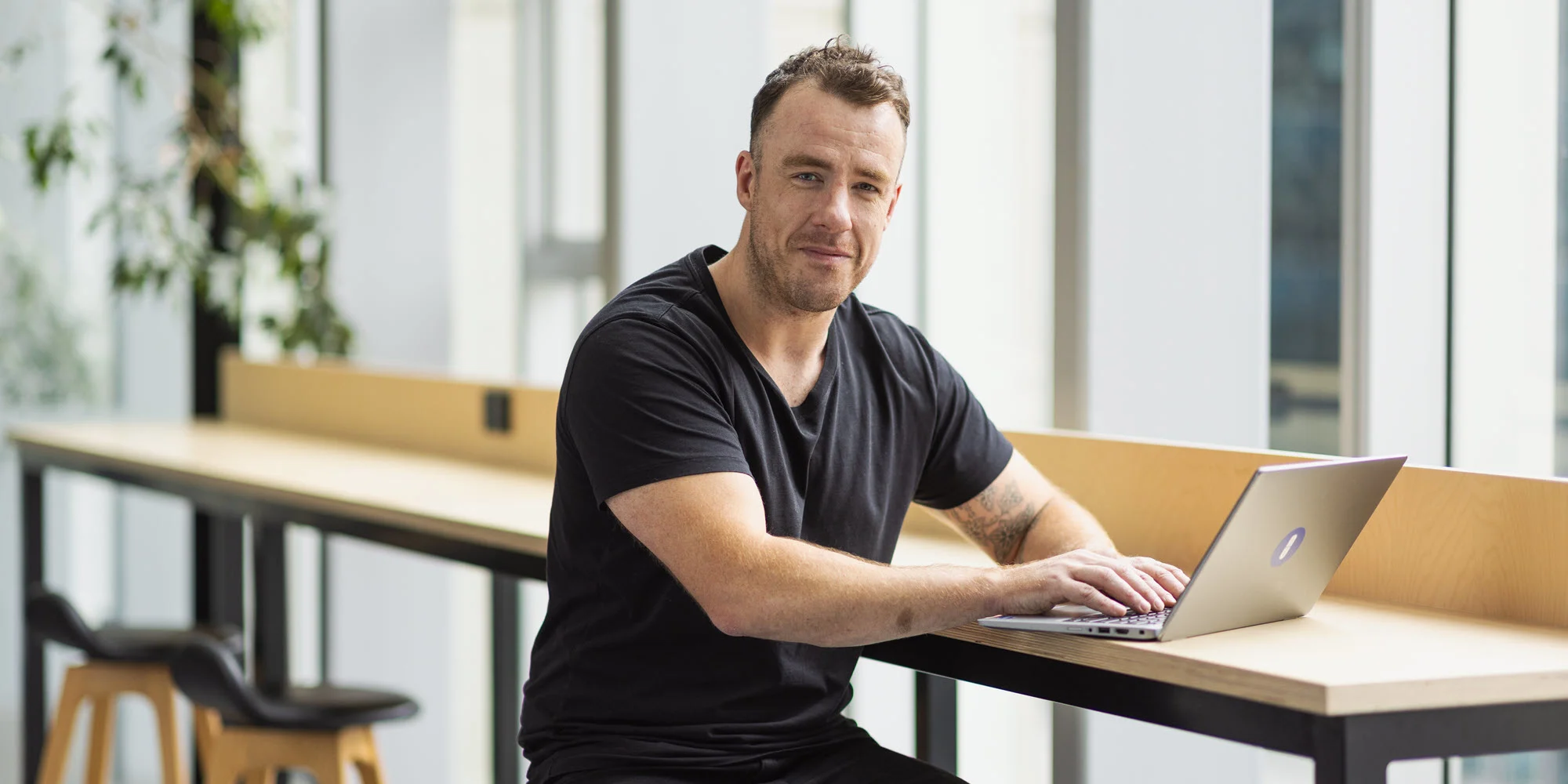How to become an occupational therapist
Help people find independence through everyday tasks by studying to become an occupational therapist in Australia.
Begin your occupational therapy career
Complete an undergraduate occupational therapy degree. A Bachelor of Occupational Therapy is the most direct pathway. However, if you’d like to explore health in a wider context before specialising in your career, you can study a more general health degree like a Bachelor of Health Science before completing a Master of Occupational Therapy.
If you already have an undergraduate degree in an unrelated area, you may be able to enrol directly into the Master of Occupational Therapy. Be mindful you will need to satisfy prerequisite subjects to qualify for a Masters Degree.
After finishing your qualification, you’ll need to apply for registration with the Occupational Therapy Board of Australia to practise as an occupational therapist.
Since you will be working with vulnerable groups, you may also be required to pass certain screening checks, including a Working With Children Check and a National Disability Insurance Scheme (NDIS) Worker Check.
What does an occupational therapist do?
Occupational therapists assess and support people whose daily routines are impacted by illness, injury, development delay, disability, the effects of ageing or mental health challenges. They help their clients tackle everyday tasks so they can function more independently at home, at work or school, and in social situations.
If you become an occupational therapist, you may find yourself working in community care, paediatrics, mental health, rehabilitation, or in the disability, medical or aged care sectors. Your final path depends on where your passion lies, which is one of the many benefits of the career.
Duties and tasks
Because occupational therapists work with a variety of clients and in a range of sectors, their duties and tasks will vary. However, common responsibilities can include:
Conducting initial in-person assessments of client challenges and strengths
Developing treatment plans that are tailored to a client’s individual needs
Running one-on-one treatment sessions, which may involve showing clients physical rehabilitation exercises, cognitive exercises or proactive pain control
Assessing where clients spend most of their time (such as the home or workplace) and recommending modifications or equipment
Writing regular reports on client progress
Working with other healthcare professionals to develop, monitor and improve client treatment plans
Industry bodies
Australian Health Practitioner Regulation Agency (AHPRA)
AHPRA sets the standards and policies that all registered health practitioners, including occupational therapists, must meet.
Occupational Therapy Australia (OTA)
OTA is the peak professional body for occupational therapists in Australia. Joining gives you access to industry journals, professional development resources and networking events.
Occupational Therapy Board of Australia
All practising occupational therapists must register with the Occupational Therapy Board of Australia, which operates under AHPRA. The OTBA develops the standards, codes and guidelines you’ll follow in your profession. It also approves accreditation standards and courses of study, handles complaints, investigations and disciplinary hearings, and assesses overseas trained practitioners who wish to practise in Australia.
Occupational Therapy Council of Australia (OTC)
The OTC maintains and develops standards of education, training and assessment for occupational therapists in Australia. When looking for a qualification, you should make sure it’s accredited by this organisation.
World Federation of Occupational Therapists (WFOT)
WFOT is an international network that represents over 580,000 occupational therapists. As a member, you can access a library of free online learning resources, connect with OTs from all over the globe, apply for research funding and stay up-to-date on developments in the profession.
Occupational therapy jobs
Occupational therapy is one of the fastest growing fields in Australia’s allied health sector. You will find positions advertised on SEEK, LinkedIn, Occupational Therapy Australia, Healthcare Australia, Careers for Carers and hospital job boards.
If you’re looking to diversify your career with further study, you could consider moving into one of the following roles:
Discover related courses
Undergraduate Certificate in Health Sciences
UndergraduateCUR-CHS-CTF
Take your first step towards a career in health—including nursing
Start building your foundational knowledge of human health and healthcare. Explore human bodies. Get to know health practice. For graduates of this online health course, the pathway to health careers and further studies is open wide.
- Study method
- 100% online
- Duration
- 6 months full time or part time equivalent
- Entry requirements
- No ATAR required. Start with a subject.
UndergraduateLAT-HSC-DEG
Explore health from many perspectives
The field of health is diverse. This online health course offers broad majors, minors, and work based learning to focus your skills and get real-world experience. From psychological science to public health, the choice is yours.
- Study method
- Online & on-campus
- Duration
- 3 years full time or part time equivalent
- Entry requirements
- No ATAR required. Start with a subject.
Available majors
- Digital Health,
- Environmental Health,
- Health Promotion,
- Health, Wellbeing and Performance,
- Psychological Science,
- Public Health,
- Rehabilitation Counselling
UndergraduateMAQ-HEA-DIP
Begin your health studies journey
Skill up with professional practices and knowledge for a future in health sciences. Learn about human structure and function. Explore lifestyle and social factors that shape wellbeing. Graduate ready to progress into a degree or start your health career.
- Study method
- 100% online
- Duration
- 1 year full time or part time equivalent
- Entry requirements
- No ATAR required. Start with a subject.
Undergraduate Certificate in Health Sciences
UndergraduateLAT-HSC-CTF
Start studying health and get ready to make a difference
Build a foundation in health and wellbeing. You’ll study anatomy and learn how to use data. Develop skills used in the health industry. Graduate ready for further study of health majors. Get set for a rewarding career in a fast-growing sector.
- Study method
- 100% online
- Duration
- 6 months full time or part time equivalent
- Entry requirements
- No ATAR required. Start with a subject.
Need help making study choices for your career?

Need help making study choices for your career?
Our student advisors will turn your aspirations into a clear study path.
They'll help you with:
Choosing and enrolling in the right course for your desired career, including pathway options.
Mapping a study plan that allows you to balance work and home commitments.
Understanding eligibility for funding, including HECS-HELP loans.
Get unbiased advice at no cost today.
Looking for other ways to start the conversation? Contact us
Step up your career with these resources

8 undergraduate certificates that will help you get into a bachelor degree
Don’t meet the requirements for your dream course? These undergraduate certificates could be your ticket in.

8 subjects you’ve never heard about (but should have)
Break away from the well-trodden path and find a course as unique as you are. From uncovering your inner palaeontologist, to studying the intricacies of Japanese culture, these eight subjects offer something a little different.

These are the most in-demand health roles right now
Wondering where to go next in your healthcare career? Take a look at these numbers.

What jobs are needed most in regional Australia?
Thinking about making a sea or country change? If you’re ready to explore life in regional Australia, you’ll find exciting job opportunities and a laid-back lifestyle that feels just right.